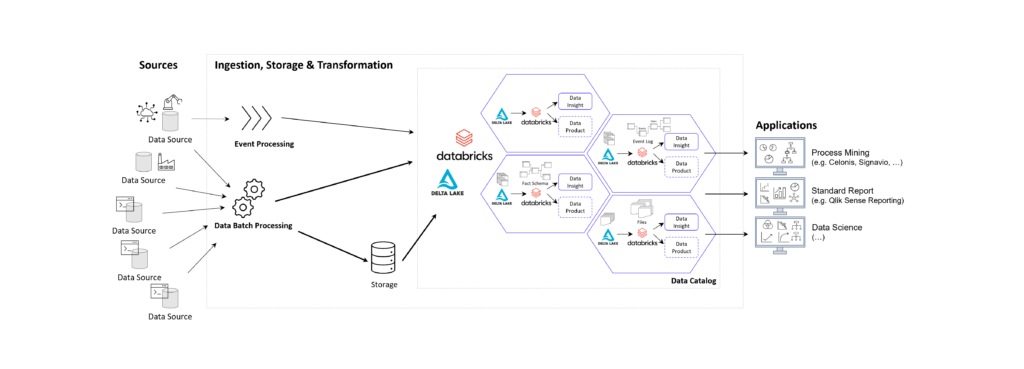
Realize your data mesh architecture in the cloud and with the tools of your choice
Big Data Cloud Architecture
Companies use Business Intelligence (BI), Data Science and Process Mining to leverage data for better decision making, improve operational efficiency and gain a competitive advantage.
DATANOMIQ makes data from all organizational as well as external sources centrally available in a Cloud Data
Data Mesh auf Ihrer Cloud
Whether you work on the Microsoft Azure Cloud, Google Cloud (GCP), Amazon Cloud (AWS) or the SAP Cloud (Datasphere), we design and implement your data mesh organization for you on this and ensure the centralized delivery of all analytical applications with data models.
The general data provision (data ingestion) from the source systems and the rudimentary data preparation and fusion are centralized. Decentralized, on the other hand, is the application- and use-case-specific final modeling, for example of the categories BI reporting (facts + dimensions), process mining (event logs) or data science / artificial intelligence (data histories).

Data Products
A data product is the multifaceted focus of the data mesh and can take various forms depending on the needs of the domain and the data it manages. It can be a curated dataset, a machine learning model, an API that exposes data, a real-time data stream, a dashboard for data visualization, or any other data-related asset that adds value to the business.
Data Ownership
Data Mesh is an architectural approach to managing data in organizations. It advocates the decentralization of data ownership to domain-oriented teams. Each team takes responsibility for its data products, and a self-managed data infrastructure is created. This enables scalability, agility, and improved data quality while promoting the democratization of data.
Data Governance & Data Sharing
With the help of data sharing (in Databricks: delta sharing), data products or individual data sets can be shared by applications and owners and managed in terms of access via data catalogs.